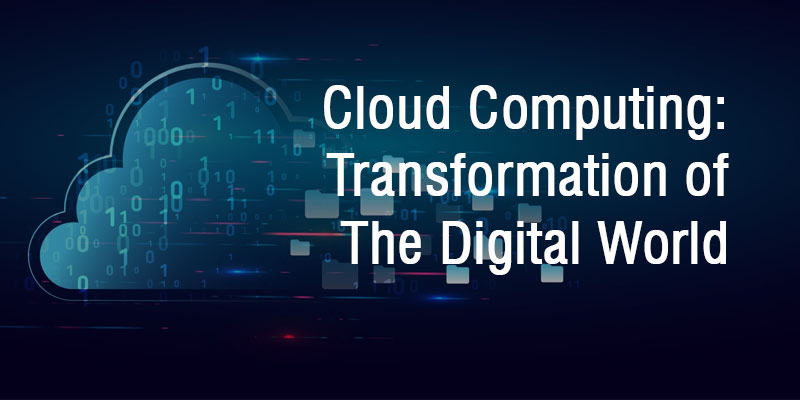Cloud computing has evolved to be the game changer in the present-day fast-paced digital world of ours. It has revolutionized business in terms of information storage and access, people accessing online services and activities. As a business person, developer, or simply someone who uses computers, cloud enables you to realize your digital lifestyle.
What is Cloud Computing?
Cloud computing provides computing services, including servers, storage, databases, networking, software, analytics and intelligence, over the Internet (the cloud) to realize faster innovation and flexible resources and economies of scale. Companies can rent access to unlimited applications or storage, and with data, cloud service providers rent them the physical data centers or servers.
Essence of Cloud Computing
On-Demand Self-Service : This feature enables consumers to use resources such as storage area or servers, and so on, on demand and with no human interaction.
Accessibility: Access to services is provided on the internet and it can be reached by any device with connection.
Resource Pooling: Cloud suppliers offer to several clients with the possibility of scaling resources which are dynamically assigned.
Rapid Elasticity: Ability to adjust the resources rapidly with regards to demand.
Metered Service: Cloud systems have metering of resources consumed in automatic optimized control.
Kinds of Cloud Computing
Public Cloud
They are third-party providers, such as AWS, Microsoft Azure Google Cloud, and are provided and delivered with internet delivery and shared across many users.
Private Cloud
Belonging to one organization only. It is more secured and controllable and it might be more expensive and demanding on management.
Hybrid Cloud
Integrates both the public and the privately managed clouds, enabling both the data and applications to be transferred between the two clouds and thus provides desirable flexibility.
Types of Cloud Computing :
Cloud Computing Service Models
IaaS Infrastructure as Service
Provides the delivery of the virtualized resources (e.g., servers, storage) over internet.
Ex: Amazon EC2
PaaS Service (platform as a service)
Provides hardware and software tools on the internet, mostly used in development of applications.
An example is Google App Engine.
A Service as of software (SaaS)
Provides the software applications on a subscription basis through the internet.
Exemple de cas d’utilisation: Dropbox, Microsoft 365.
The strengths of using Cloud Computing are:
Cost effective – pay as you go.
Scalable: Easily expand and reduce in both directions, according to whatever demand has.
Reliable: Makes possible Disaster recovery, data backup and high availability.
Safe: There are advanced security measures to protect confidential information.
Eco-Friendly : green can be made through resourcefulness that can minimize carbon footprints
The Business Application of Cloud Computing
- Web and application hosting
- The work with large amounts of data
- Testing and formulation of software
- Storage backup data
- Operation of virtual desktops and virtual servers
- Audio and Videos streaming
What is the future of cloud computing?
There is a bright future in terms of such trends as edge computing, serverless architecture, the integration of AI, and multi-cloud strategy. Cloud computing will still lead to the digital transformation in various industries due to the evolution of technologies.
Cloud Computing FAQ
Q: What is cloud computing?
A: Cloud computing is a framework for providing computing services via internet , where the resources like server, storage, database, software, and application are delivered as a services to users on-demand
Q: What are the benefits of cloud computing?
A: The cloud is making possible to harness the power of elastic,flexible,cheap,reliable and secure resources. Users gain access to their and data applications from any location, on any device at any time.
Q: What types of cloud computing are there?
A: The mian types of cloud computing are the public cloud, the private cloud.and the hybrid cloud. Public cloud are multi-tenant evironments, private clouds are singletenant rnvironments, and hybrid clouds are combination of public and private clouds.
Q: Is cloud computing safe?
A: Cloud computing providers are comitted to security with maximum effort, including the use of encryption firewalls and control for accessing. for the protection of data and application. However,it is suggested that users also secure their data and applications by option for strong passwords and keeping an eye on their usage besides the steps they take to secure their data and application.
Q: What are some examples of cloud computing services?
A: Examples of cloud computing services can be cloud storage (like Dropbox, Google Drive), cloud based productivity suits (like Google Workspace Microsoft 365) and cloud-based gaming like,(Google Stadia, Microsoft X Cloud).
Q: How does cloud computing work?
A: Cloud computing is accomplished by providing users with the capacity to employ computing powe on demand over the internet. Users can additionally control these resources via a web interface or API, an they can scale up or down their consumption as neede.
Q: What are the advantages of cloud computing over traditional on-premises infrastructure?
A: Cloud computing offers seveal advantages to traditional on-primises infrastrcutre,whice include reduced capital expenditures, increased scalabililty and improved flexibility.
Q: Can I use cloud computing for my business?
A: The cloud definitely be harnessed by any size of business. cloud computing has numeous advantages and one of them is it can offer you more flexibility, scalability and cost effectiveness which makesit a perfect solution for businesses whose needs are constantly changing .
Q: How do I get started with cloud computing?
A: To become a familiar with cloud computing,one can initate by investigating various cloud providers and services and finding out which ones are suitable. Another option is to seek the advice of a cloud computing expert or enroll in online courses to gain knowledge about cloud computing

